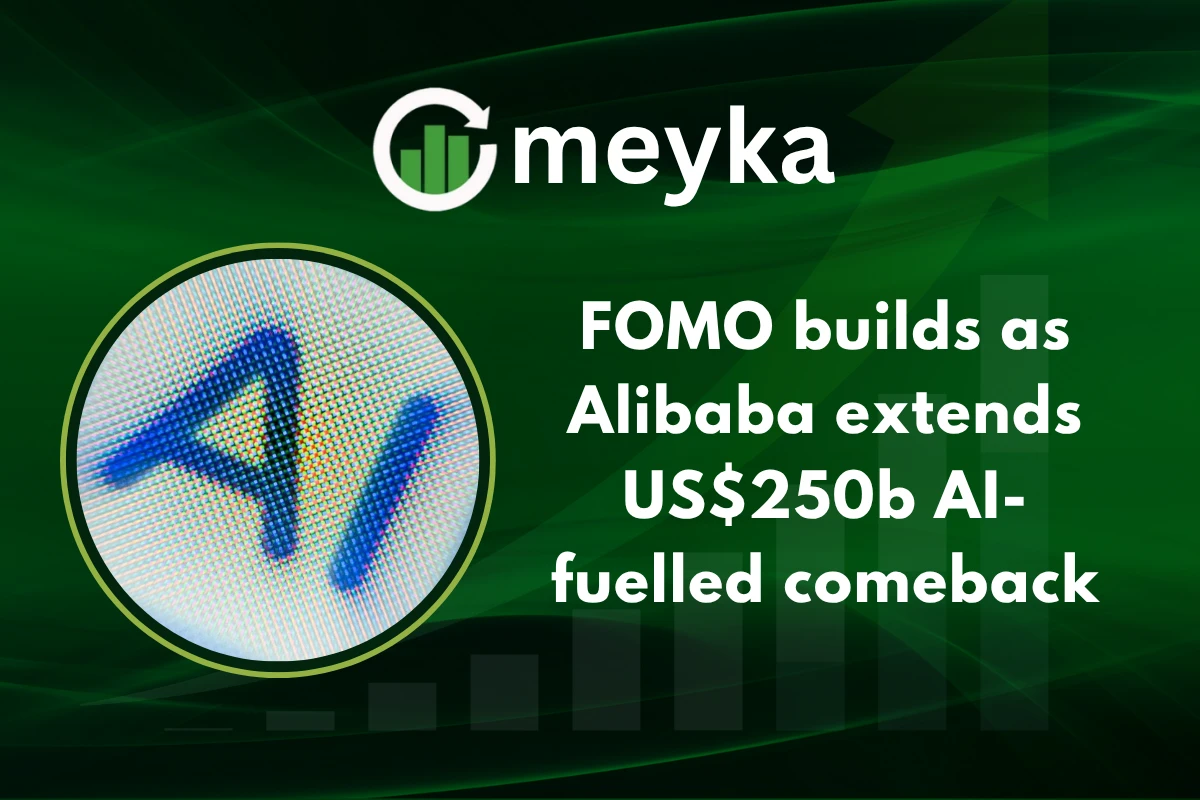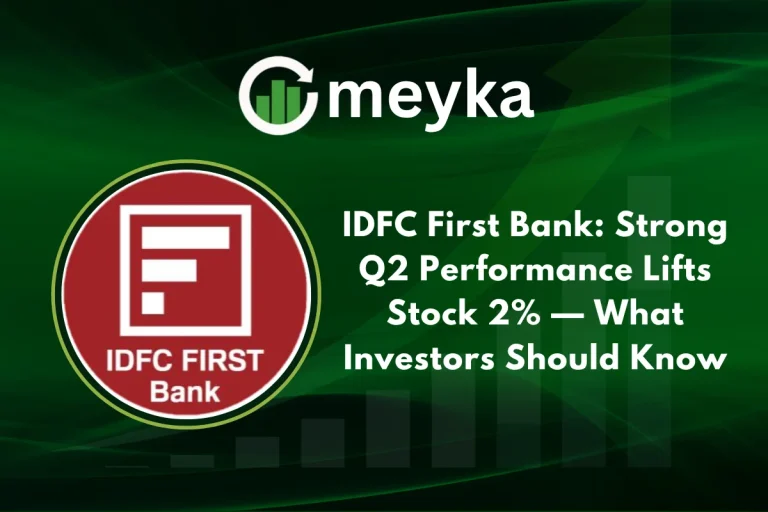FOMO Rises as Alibaba Pushes $250B AI Comeback
Alibaba stunned markets with a bold push into artificial intelligence, a move that has triggered palpable FOMO among investors worldwide. The company’s renewed spending plans and public signals have made it a focal point for funds looking to ride the AI wave.
Fund managers and retail investors have reacted quickly, driving flows into Alibaba shares as many fear missing the next big growth story. This article examines the size of the commitment, how markets have responded, and what the longer term implications may be for the global AI landscape.
FOMO Builds as Alibaba Bets Big on AI
The Scale of the $250 Billion AI Investment
Alibaba has become the poster child for China’s AI hopes after fund managers flagged a US$250 billion AI fueled comeback this year. Its US listed shares have more than doubled as investors buy into Beijing’s vision of self reliance in the new tech landscape.
The rally has stoked a clear sense of FOMO across markets, with investors debating whether to step in now or risk being left behind.
How Alibaba Plans to Challenge US Tech Giants
CEO Eddie Wu has indicated Alibaba will expand a previously projected US$53 billion AI budget over the next three years, and the company is leaning on cloud, data and model capabilities to compete.
Alibaba Cloud posted a 26 percent revenue jump in the latest quarter, underscoring the unit’s importance to the group’s AI push. That mix of cloud scale and proprietary data is Alibaba’s main lever against global hyperscalers.
The Global AI Race Intensifies
Competition with Amazon, Microsoft, and Google
The four major US hyperscalers are expected to spend hundreds of billions on AI this year, a scale that highlights both the opportunity and the arms race across regions. Alibaba’s strategy centers on serving domestic and international clients, while showing it can build large language models and source AI chips at competitive cost.
Why Investors See AI as the Next Big Frontier
Investors consider AI a potential multi trillion dollar market, and that expectation is a key reason why capital flows quickly when a dominant player signals serious spending. FOMO grows when early winners show traction, prompting others to mirror their moves.
Market Reactions and Investor Sentiment
How Alibaba’s Stock Responded to the Announcement
Shares rose as much as 1.7 percent on a recent trading day, reaching the highest level since August 2021 in some markets, and US listed shares have more than doubled earlier in the year. Despite that gain Alibaba is still significantly below its all time peak, leaving room for managers who see value at current levels.
Global Investor Behavior and Tech Sector Impact
Onshore investors increased holdings to about 11 percent of shares as of September 30, up from 8.6 percent a month earlier, while overseas funds were still underweight the stock. Short interest has spiked in Hong Kong, and options activity shows traders are both betting on further gains and hedging exposure, signs that FOMO and speculation are intertwined.
Notable managers like Cathie Wood have reopened positions, while Alibaba trades near 22 times forward earnings, a valuation that some investors see as fair given potential AI driven growth and cloud momentum. globally.
FOMO Among Investors Explained
What Drives the Fear of Missing Out in AI Investments
FOMO is driven by fast price moves, bold headlines, and the memory of prior tech booms where early adopters captured outsized returns. When a company combines early product wins with heavy spending plans, the pressure to act now can grow quickly.
Case Studies from Past Tech Booms
Past waves in cloud and social media taught investors that missing early moves can lead to regret, a lesson that fuels current FOMO, shaping behavior as markets price in the next wave of tech leadership.
Expert Views and Media Coverage
Analysis from The Edge Markets and Finanzen100
Coverage by The Edge highlights analyst views that Alibaba remains a buy for many, noting improved cloud results and measurable progress in AI capabilities. Journalists balanced optimism with caution, reminding readers of the regulatory and economic challenges that weighed on the stock in prior years.
Industry Analysts on Long Term AI Market Potential
Most analysts say long term success will hinge on real world revenue from AI services, not just model demonstrations, and that durable earnings will calm FOMO driven volatility.
Broader Implications of Alibaba’s AI Push
How This Shapes China’s Role in AI
Alibaba’s scale and domestic reach could strengthen China’s AI ecosystem, reinforcing self reliance in chips, models and cloud infrastructure. That shift has geopolitical and economic implications, as markets reassess where technological leadership may sit.
What Global Markets Should Expect Next
Markets should expect continued volatility and headlines that stoke fresh waves of FOMO, as investors monitor spending plans, cloud growth and model adoption across industries.
Why is FOMO so strong in AI markets now? Because AI is seen as the next trillion dollar opportunity, investors rush to own promising names to avoid regret, which drives rapid inflows.
Why is Alibaba investing so heavily in AI? Alibaba aims to make AI a core growth engine, leveraging cloud scale, data access and model development to capture new revenue streams.
Conclusion
FOMO has become a defining trait of the current market moment as Alibaba pushes a US$250 billion AI comeback. The company’s cloud momentum, expanding budgets and visible model progress have stirred investor appetite, but the long term payoff depends on sustainable earnings growth and broad adoption. Whether FOMO fuels a sustained rally or a sharper
FAQ’S
Yes, Alibaba has invested heavily in artificial intelligence, with a planned $250 billion AI comeback focusing on cloud services, large models, and open-source innovation.
Alibaba Cloud recently unveiled more than 100 new open-source AI models, strengthening China’s role in the global AI race and attracting global developer interest.
Yes, Alibaba has released multiple AI solutions, including its Tongyi Qianwen large language model, alongside open-source models designed for enterprise and consumer use.
Alibaba has made many of its AI models open-source, allowing global developers to use and customize them, a move designed to boost adoption and competitiveness.
Nvidia is often referred to as the king of AI stock, as its GPUs power most advanced AI systems, making it a dominant player in the AI hardware market.
Biggest investors in AI include tech giants like Microsoft, Google, and Amazon, along with Alibaba in China, all pouring billions into AI development and infrastructure.
Disclaimer
This content is for informational purposes only and is not financial advice. Always conduct your research.






